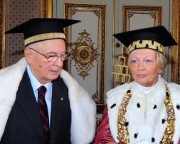Male identity: a new book
During the event – organized by the PhD Program in Cultural and Post-colonial Studies in the English-speaking World – Stefano Ciccone accounts for the main subject of his book, the male identity
Stefano Ciccone begins with the discussion of prejudice about gender, remembering the university and the courses that were considered unsuitable for women: during a frog dissection you were forced to have a strong stomach, otherwise you were labeled as ‘a sissy’.
Such teachings are not expected, even if they are simple. Thanks to a few good examples, Stefano Ciccone discusses a variety of issues regarding the construction of the male identity.
A further topic introduced is males’ inability to talk about themselves. The construction of self-identity is related to self-expression, and men are responsible for this troubled situation and for their inability. Body and emotions stand off of this construction and in the meanwhile men learn to interact with the world and stop thinking about themselves.
Stefano Ciccone defines this sort of alienation as the perspective of a “situated” subject. Where are men situated in such conflict between genders and within their gender? How will this conflict evolve? There are two possible solutions: the first one is an assumption of responsibility based on an ethic and principled choice; the second one is the assumption of the responsibility for the violence caused by men. Such assumption is plainly described in opposition to power oriented mechanisms: when a man witnesses another male doing violence to women – like the female colleagues devaluation – he can perceive such power mechanisms and therefore contest violence. But it’s easier said than done; since the two different attitudes imply two different “situated” perspectives, related to opposite ideas.
The persistence of a sexist and power oriented view impoverishes man physicality and sexuality (the distance from children is a typical masculine trait) exacerbating the competition between sexes and within their gender. Man’s body appears like an annihilating weapon. Such misery should be overcome, since everyone is able to search out his own subjective model and to create his own tissue of personal relations.
A particular male model has deeply influenced human nature. That’s why, paradoxically, a man pride day is not feasible: it would be a contradiction in terms.
Parole chiave | tags
gender male identity post-colonial studies power Stefano Ciccone


Invia nuovo commento